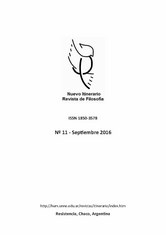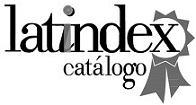Ethical life and situationality. Elements for a social critique
DOI:
https://doi.org/10.30972/nvt.2027914Keywords:
ethical life, situationality, social criticism, freedom, justiceAbstract
This article proposes, in the first step, to undertake a reconstructive exploration of the meanings and uses that Hegel develops and applies to his notion of ethical life (Sittlichkeit) through the analysis in three of his key works: System of Ethical Life, Encyclopedia of Philosophical Sciences, and eventually the discussion of its application in the foundational lines of Philosophy of Right. This key concept will show its effectiveness in contributing to Hegel’s diagnosis of his era, in an attempt to restore meaning and integrity amidst the fragmentation of his contemporary society.
This first step leads, in turn, to a second instance where it is possible to find an updated version of this Hegelian idea in the work of Axel Honneth in connection with the ideas of freedom and justice. Following the model of a normative reconstruction derived from Hegel, the formalization of the concept of ethical life will be further proposed to enhance its productivity in social analysis and contemporary theoretical debates.
Finally, the formal concept of ethical life implies the thematization of aspects that require a “situational approach” as a key relevant analytic tool, one that must adopt a critical perspective in order to properly understand social and political processes with effective geo-historical-political determinations. The aim is to bring into tension the “formal concept of ethical life” and the elements of a “situational approach” in order to show how the situation becomes relevant to foster critical thinking about reality.
References
Auat, A. (2011). Hacia una filosofía política situada. Waldhuter Editores.
Auat, A. (2021). Situación y mediaciones. Nuestra democracia: entre populismo y neoliberalismo. UNR Editora; Centro de Estudios Desarrollo y Territorio; Editorial Fundación Ross.
De Zan, J. (2009). La filosofía social y política de Hegel: trabajo y propiedad en la filosofía práctica. Ediciones del Signo.
Dotti, J.E. (1983). Dialéctica y derecho. El proyecto ético-político hegeliano. Editorial Hachette.
Hegel, G. (2010). Líneas fundamentales de la filosofía del derecho. Editorial Gredos.
Hegel, G. (2017 [1830]). Enciclopedia de las ciencias filosóficas. Edición bilingüe de Ramón Valls Plana. Abada Editores.
Honneth, A. (1992). Kampf um Anerkennung. Zur moralischen Grammatik sozialer Konflikte. Suhrkamp Verlag.
Honneth, A. (1997). La lucha por el reconocimiento. Por una gramática moral de los conflictos sociales. Editorial Crítica.
Honneth, A. (2009). Patologías de la razón. Historia y actualidad de la Teoría Crítica. Katz Editores. DOI: https://doi.org/10.2307/j.ctvm7bcdz
Honneth, A. (2011). La sociedad del desprecio. Editorial Trotta.
Honneth, A. (2014). El derecho de la libertad. Esbozo de una eticidad democrática. Katz Editores.
Honneth, A. (2016). Patologías de la libertad. Editorial Las Cuarenta.
Honneth, A. (2018). Anerkennung. Eine europäische Ideengeschichte. Suhrkamp.
Honneth, A. (2019). Reconocimiento. Una historia de las ideas europeas. Ediciones Akal.
Negro Pavón, D. (1982). Introducción. En G. Hegel, El sistema de la eticidad (pp. 7-105). Editora Nacional.
Romero Cuevas, J.M. (2016). El lugar de la crítica: teoría crítica, hermenéutica y el problema de la trascendencia intrahistórica. Editorial Biblioteca Nueva.
Siep, L. (2007). La actualidad de la filosofía práctica de Hegel. Hegel y el holismo de la filosofía política. Universidad Externado de Colombia.
Taylor, Ch. (2010). Hegel. Anthropos Editorial.
Downloads
Published
How to Cite
Issue
Section
License

This work is licensed under a Creative Commons Attribution-NonCommercial 4.0 International License.
Les autores ceden a Nuevo Itinerario los derechos de publicidad de sus trabajos, toda vez que hayan sido admitidos como parte de alguno de sus números. Ello no obstante, les autores retienen los derechos de propiedad intelectual y responsabilidad ética así como la posibilidad de dar difusión propia por los medios que consideren.












51.jpg)

